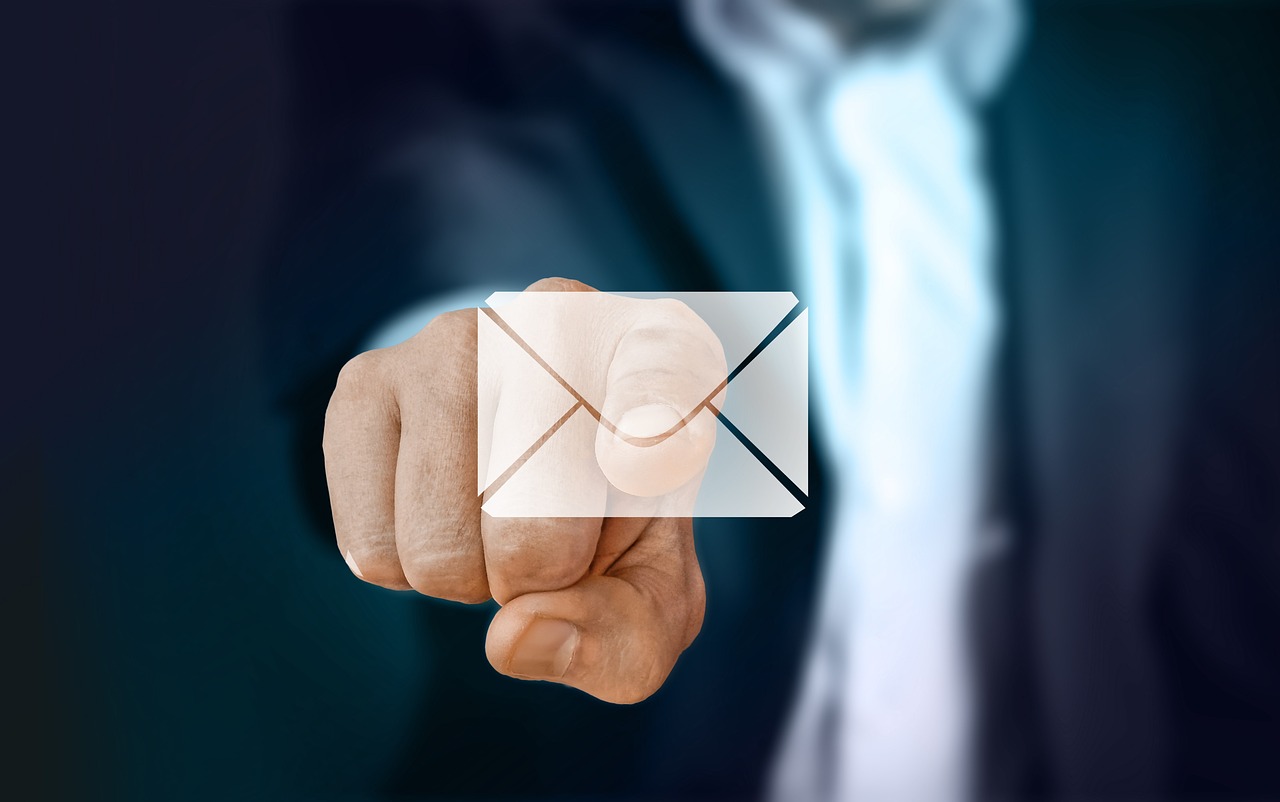Email personalization in e-commerce- the key to success in tailoring content to customer preferences
In today's competitive e-commerce world, the key to gaining an edge over the competition is to deliver personalized shopping experiences. Email personalization has become an extremely effective tool in e-marketing, allowing companies to tailor content to individual customer preferences. By analyzing the effectiveness of email personalization in e-commerce, we can better understand how it affects sales growth, customer engagement, and loyalty building. In this article, we will look at various aspects of email personalization, and we will present 10 business examples, including those related to well-known brands, which successfully use this strategy.
1. Custom product recommendations
One of the most important aspects of email personalization in e-commerce is providing customers with product recommendations that match their preferences. For example, clothing company X can analyze the purchase history of customers and send personalized emails with recommendations based on their preferred styles and sizes. An example of such an application could be Zara, which sends emails with individual recommendations based on previous customers' purchases, thereby increasing the likelihood of making another transaction.
2. Personalized promotional notifications
When a company introduces promotions or sales, sending personalized notifications about these offers can be an extremely effective tool. For example, cosmetics company Y can analyze customer preferences for brand, skin type, and preferred products, and then send them personalized emails with information about promotions on these specific products. An example of such an application is Sephora, which sends personalized emails with information about promotions and free samples based on customer preferences.
3. Proper customer segmentation
Customer segmentation is a key element in effective email personalization. By dividing customers into groups with similar preferences and shopping behaviors, companies can tailor email content to be more relevant to recipients. For example, electronic company A can segment customers based on their preferences for product categories such as televisions, smartphones, and computers. Then, by sending personalized emails with offers and information about new releases related to these categories, the company can increase engagement and conversions. An example of such an application is Amazon, which customizes email content to customer preferences based on their purchase history and site activity. Dynamic content personalization One of the most advanced ways of email personalization in e-commerce is dynamic content personalization. It allows for the creation of personalized content based on customer data such as name, location, preferred product categories, etc. For example, furniture company B can send customers emails with offers on products that are available in their region. An example of such an application is IKEA, which sends personalized emails with information about local promotions and events in stores. Abandoned cart notifications Many customers abandon shopping carts before finalizing a transaction. Sending personalized emails reminding about abandoned carts can help recover these potential sales. For example, clothing company C can send emails with individual discount offers on products that the customer added to the cart but did not purchase. An example of such an application is ASOS, which sends personalized emails with reminders about abandoned carts, offering customers a discount code to make a purchase. Birthday and anniversary offers Sending personalized emails on the occasion of customers' birthdays or anniversaries of their first purchase can increase engagement and build greater loyalty. For example, jewelry company D can send customers personalized emails with special offers on their birthdays or anniversaries of buying an engagement ring. An example of such an application is Pandora, which sends personalized emails with discount codes on customers' birthdays and information about new collections. Activity-related emails Monitoring customer activity on the website and tailoring email content based on this activity can be extremely effective. For example, fitness company E can send personalized emails with training tips and product offers to customers who regularly use the fitness app and visit the website. An example of such an application is the Nike Training Club app, which sends personalized emails with training recommendations based on the user's activity in the app. Custom emails for loyal customers Rewarding loyal customers by sending them personalized emails with exclusive offers can build greater loyalty and encourage return. For example, travel company F can send loyal customers personalized emails with offers for vacations in selected destinations, taking into account their travel preferences and budget. An example of such an application is the British Airways loyalty program, which sends personalized emails with special offers to loyal members of the program. Leave/Review product emails After purchasing a product, sending customers personalized emails asking for a rating or review can help build trust and encourage other customers to purchase. For example, electronics company G can send emails asking for a rating of the purchased TV and offer customers a discount code for future purchases for giving a review. An example of such an application is Best Buy, which sends personalized emails asking for a product review and information about the possibility of earning points in the loyalty program. Personalized B2B emails : Not only B2C companies can benefit from email personalization. B2B companies can also use this strategy to deliver personalized content and offers to their business customers. For example, IT company H can send B2B customers personalized emails with information about new products and solutions that match their industry and needs. An example of such an application is Salesforce, which provides personalized emails with content related to the client's business and information about new features of their CRM
4. Dynamic content personalization
One of the most advanced ways of email personalization in e-commerce is dynamic content personalization. It allows for the creation of personalized content based on customer data such as name, location, preferred product categories, etc. For example, furniture company B can send customers emails with offers on products that are available in their region. An example of such an application is IKEA, which sends personalized emails with information about local promotions and events in stores.
5. Abandoned cart notifications
Many customers abandon shopping carts before finalizing a transaction. Sending personalized emails reminding about abandoned carts can help recover these potential sales. For example, clothing company C can send emails with individual discount offers on products that the customer added to the cart but did not purchase. An example of such an application is ASOS, which sends personalized emails with reminders about abandoned carts, offering customers a discount code to make a purchase.
6. Birthday and anniversary offers
Sending personalized emails on the occasion of customers' birthdays or anniversaries of their first purchase can increase engagement and build greater loyalty. For example, jewelry company D can send customers personalized emails with special offers on their birthdays or anniversaries of buying an engagement ring. An example of such an application is Pandora, which sends personalized emails with discount codes on customers' birthdays and information about new collections.
7. Activity-related emails
Monitoring customer activity on the website and tailoring email content based on this activity can be extremely effective. For example, fitness company E can send personalized emails with training tips and product offers to customers who regularly use the fitness app and visit the website. An example of such an application is the Nike Training Club app, which sends personalized emails with training recommendations based on the user's activity in the app.
8. Custom emails for loyal customers
Rewarding loyal customers by sending them personalized emails with exclusive offers can build greater loyalty and encourage return. For example, travel company F can send loyal customers personalized emails with offers for vacations in selected destinations, taking into account their travel preferences and budget. An example of such an application is the British Airways loyalty program, which sends personalized emails with special offers to loyal members of the program.
9. Leave/Review product emails
After purchasing a product, sending customers personalized emails asking for a rating or review can help build trust and encourage other customers to purchase. For example, electronics company G can send emails asking for a rating of the purchased TV and offer customers a discount code for future purchases for giving a review. An example of such an application is Best Buy, which sends personalized emails asking for a product review and information about the possibility of earning points in the loyalty program.
10. Personalized B2B emails
Not only B2C companies can benefit from email personalization. B2B companies can also use this strategy to deliver personalized content and offers to their business customers. For example, IT company H can send B2B customers personalized emails with information about new products and solutions that match their industry and needs. An example of such an application is Salesforce, which provides personalized emails with content related to the client's business and information about new features of their CRM platform.
Email personalization in e-commerce is an incredibly powerful tool that allows companies to tailor content to individual customer preferences. Analyzing the effectiveness of email personalization helps understand how this strategy impacts business outcomes. By reviewing 10 business examples, we can see the diverse possibilities of using email personalization in practice.
Providing personalized product recommendations is one of the key aspects of email personalization. Companies like Zara or Amazon use data about customer preferences to send individual recommendations, which increases the chances of making subsequent transactions.
Personalized promotion notifications are another effective application of email personalization. Companies like Sephora or Netflix send personalized emails with promotion information and offer additional benefits tailored to customer preferences.
Proper customer segmentation is a key element of email personalization. For example, Amazon analyzes the purchase history and activity of customers, adjusting the content of emails to their preferences. Such an approach helps increase engagement and conversions.
Dynamic content personalization, as applied by IKEA or Facebook, allows for the creation of personalized content based on customer data, such as location or preferred product categories. As a result, emails are more relevant and effective.
The conclusions from these examples are clear - email personalization in e-commerce is of great importance for increasing sales, engaging customers, and building loyalty. Tailored product recommendations, promotion notifications, proper customer segmentation, and dynamic content personalization are just some of the possibilities that are worth using. Implementing email personalization can help companies achieve success in the competitive e-commerce market.






